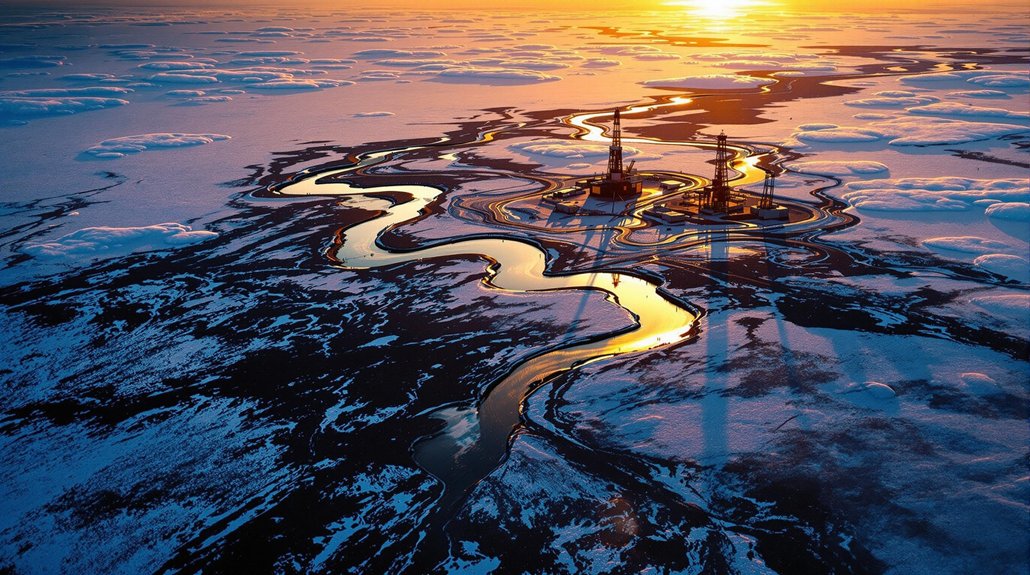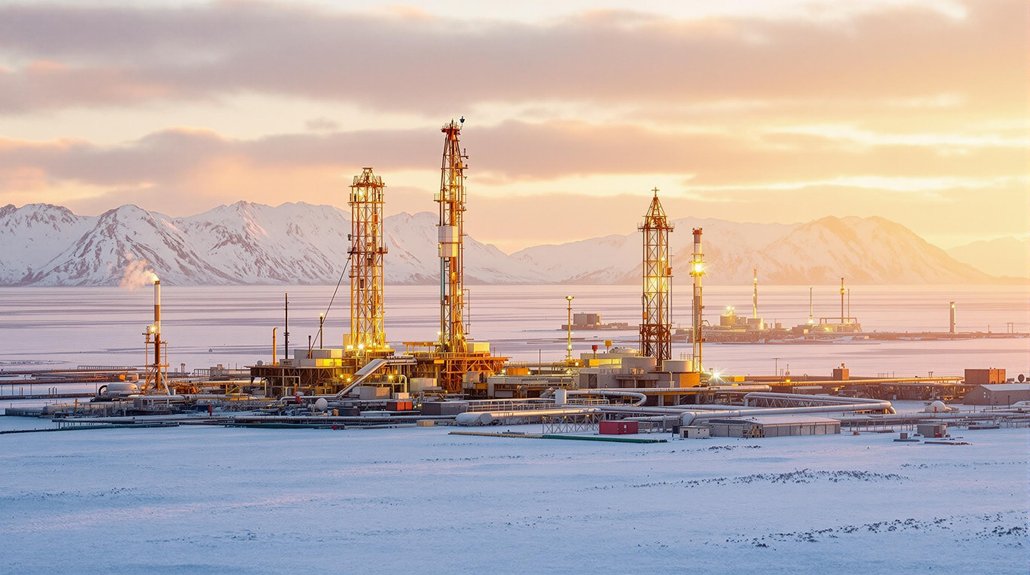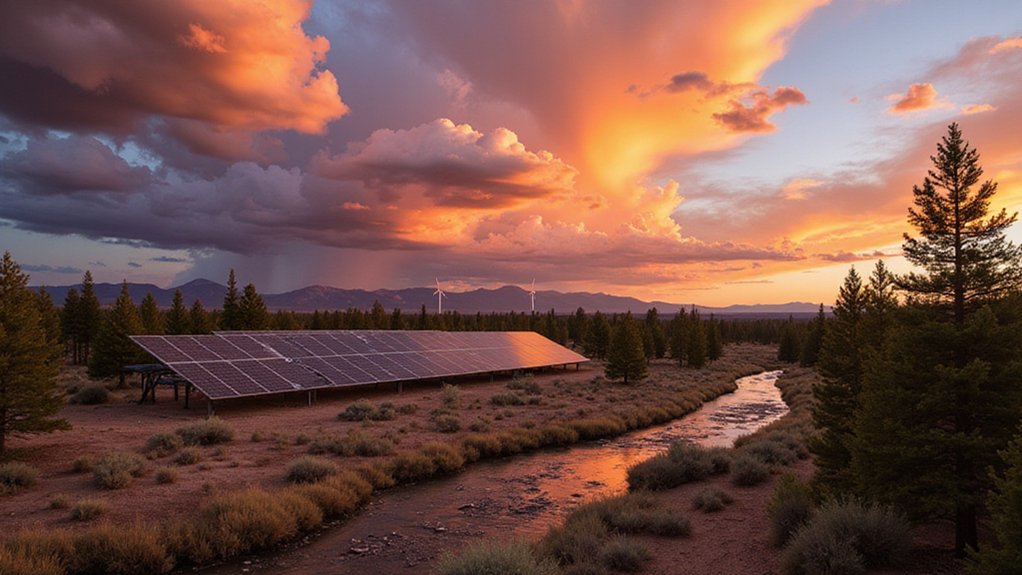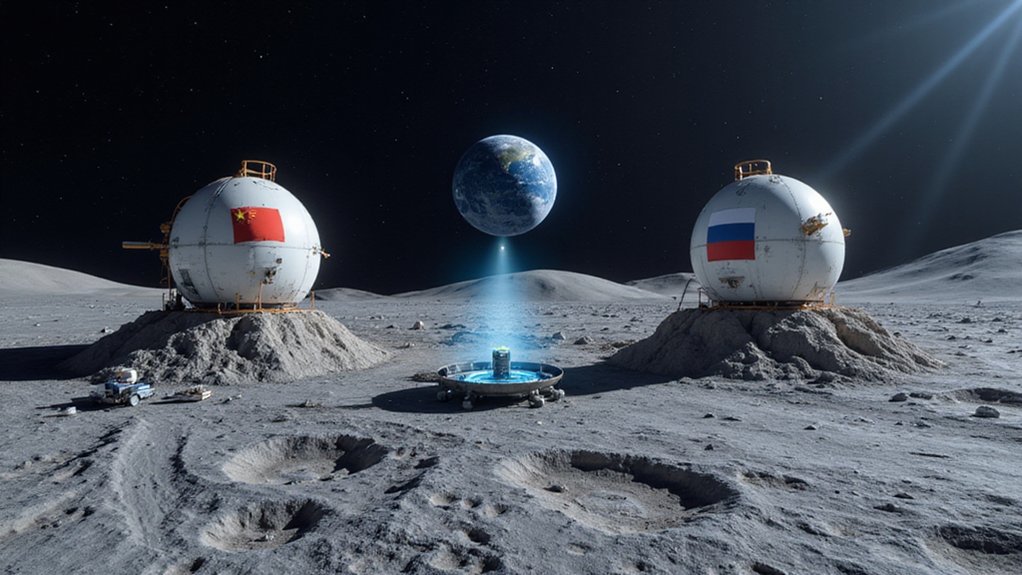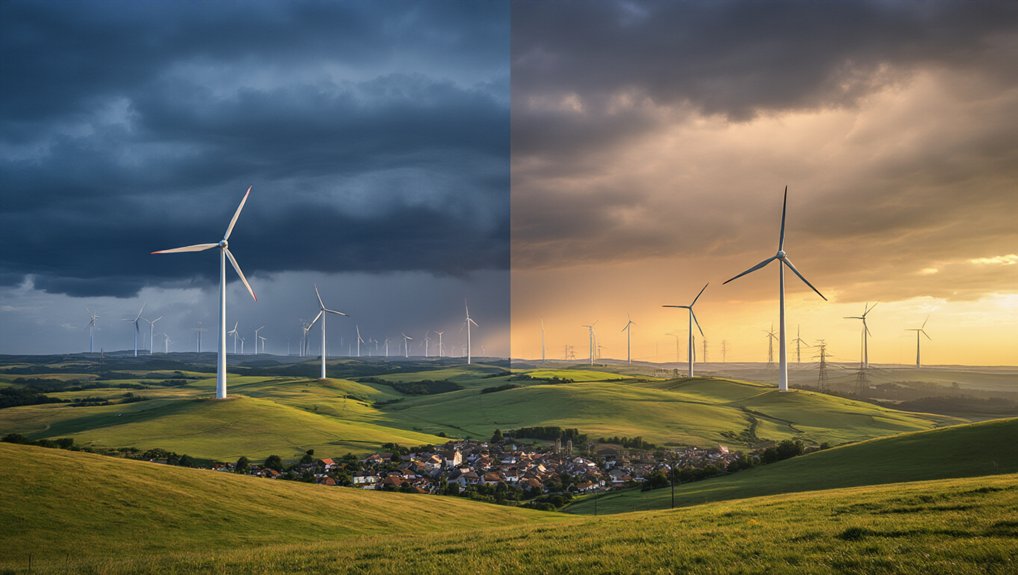The Trump administration systematically dismantled environmental protections across Alaska, opening 20 million pristine acres to oil drilling. They released 82% of the National Petroleum Reserve-Alaska and pushed for development in the Arctic Wildlife Refuge‘s coastal plain. Officials justified this as economic salvation for Alaska and energy independence. Environmental groups and Native tribes fought back with lawsuits. Major banks balked at financing. The pristine wilderness-versus-petroleum battle left quite the messy legacy.
While environmentalists mourned, the Trump administration aggressively pursued its “energy dominance” agenda in Alaska, dismantling Obama-era protections that had kept drilling rigs out of the Arctic’s most pristine areas. The policy shift was sweeping and deliberate. Roughly 20 million acres—previously untouchable—were suddenly available to the highest bidder.
The numbers tell the story. Trump officials opened 82% of the National Petroleum Reserve-Alaska for oil leasing, approximately 18.6 million acres. They approved the massive Willow project in 2020, right in the heart of these lands. Not satisfied with that, they pushed to drill in the Arctic National Wildlife Refuge‘s coastal plain—1.56 million acres of critical habitat that had been protected for decades.
The potential prize? Huge. Government surveys estimate ANWR’s coastal plain holds 10.4 billion barrels of recoverable oil. The NPR-A might contain another 8.7 billion. Offshore, the Beaufort and Chukchi Seas could yield 24.3 billion more. That’s a lot of black gold.
Of course, the administration had its reasons. Jobs, they said. Revenue for Alaska’s struggling economy. Energy independence. Keeping the Trans-Alaska Pipeline flowing. All wrapped in patriotic packaging. Governor Mike Dunleavy has enthusiastically supported these initiatives, viewing Alaska’s resources as essential for creating investment opportunities and jobs.
But the environmental math wasn’t exactly reassuring. Caribou calving grounds? Threatened. Polar bear denning habitat? Compromised. Pristine Arctic ecosystems? Vulnerable to spills in one of Earth’s harshest environments. Not to mention the climate impacts of extracting all that fossil fuel. The potential for deforestation could exacerbate climate issues by destroying vital carbon sinks that help mitigate greenhouse gas emissions.
The resistance was substantial. Environmental groups sued. Native tribes fought back. Major banks refused to finance Arctic drilling. Even oil companies seemed hesitant—the ANWR lease sale in January 2021 raised a paltry $14.4 million, not billions. Indigenous communities like the Gwichin voiced serious concerns about the caribou migration disruption threatening their cultural practices and subsistence activities.
Still, the regulatory changes were done. Safety rules for Arctic drilling? Relaxed. Environmental reviews? Expedited. Management plans? Rewritten.
The legacy remains contested. What some called a strategic achievement, others labeled an ecological tragedy. Alaska’s future now hangs in the balance of courts, markets, and a warming Arctic.
